In this week's case discussion from Dr Terry Harvey, this 20x17mm pigmented lesion is present on...
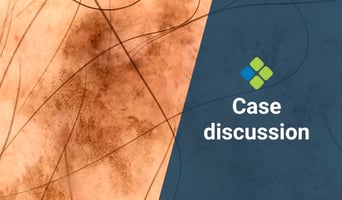
Advance your competency in dermoscopy and the surgical and non-surgical treatment of skin cancer.
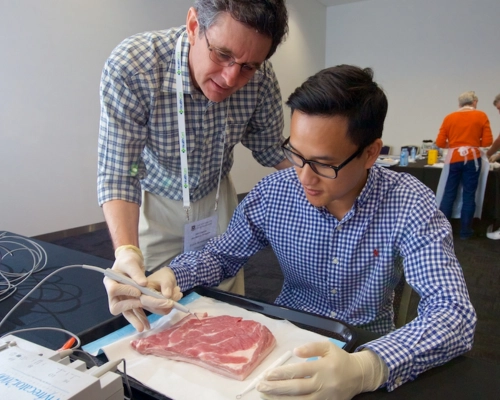
Gain valuable experience in rarely covered areas of skin cancer medicine including diathermy, curettage and cautery, and suturing (including ‘paper-thin’ elderly skin).
- Receive an excellent introduction to advanced dermoscopy.
- Acquire the essential knowledge to diagnose and manage most skin cancers in your practice.
- Manage diagnosis and treatment from your office to increase revenue and reduce referrals.
- This course is for physicians, nurse practitioners, and degree-qualified nurses.
- CPD-accredited and university-assured.
Fulfils 50 hrs for medical professionals in Australia*
100% online
Online + workshop
Fully online: $2495
Online + workshop: from $3395
Special rates available
66.5 hrs
Self-paced
2024
26 May in Melbourne
15 June in Adelaide
25 Aug is Brisbane
22 Sep in Sydney
13 Oct in Melbourne
09 Nov in Perth
- Perform advanced biopsy techniques, large elliptical excisions, lower leg grafts, suturing, and more.
- Improve your diagnostic skills through advanced dermatoscopy, and administer local anaesthesia.
- Use curettage and cautery to treat more skin lesions and reduce referrals.
- Master ellipse planning to ensure optimal cosmetic outcomes.
- Identify and manage the "big three" skin cancers: BCC, SCC, and melanoma.
Get unlimited access to all course content, additional learning materials, ongoing post-course support, and more.
*These topics are covered during the hands-on practical sessions in the optional skills workshop. View the workshop program.
Unit one looks at the most common type of excision (elliptical excision). The detailed marking out process consists of dotting and assessing the edge of lesion, determining solid line surgical margin and designing the ellipse. The unit is illustrated by mathematical diagrams and clinical images of performing the ellipse on various parts of the anatomy. Recordings of key suture techniques and procedures support the learning on both pigskin and in the clinical setting.
Unit two continues with the ellipse procedure. It describes how best to cut the ellipse and how to hold the scalpel. Diagrams and images demonstrate the best practice approach to cutting the ellipse. Videos of blade handle tilt and cutting ends of the ellipse are illustrated in this unit. Attention is also paid to atraumatic technique and undermining supported by clinical recordings.
In unit three, different types of sutures are listed describing pros and cons of each suture type. These include dermal, the slider, dermal pulley, butterfly dermal, simple interrupted, mattress and continuous sutures. Knotting techniques for sutures is described in detail. Multiple clinical images, recordings and diagrams assist with understanding these techniques. The unit concludes with suturing in elderly patients with thinner skin.
The module lists the pharmacology and guidelines of the two main classes of local anaesthetic - amides (lignocaine, bupivacaine, prilocaine) and esters (procaine, benzocaine, cocaine). Two routes of administration of local anaesthesia are described - local field infiltration and/or nerve block. The process of infiltration is listed, including bevel and needle orientation. Recordings of preparation and injecting the site support the learning. Practical tips for the patient are outlined to minimise wound damage due to site numbness.
The second part of this module focusses on injecting the ear and lip, paying attention to sensory nerve blocks including the trigeminal nerve, infra-orbital nerve, mental nerve and temporal nerves. Diagrams, images and clinical recordings of nerve blocks are provided. ‘Tiger country’ complexities are described and supported by diagrams and images. Areas of extreme complexity like Erb's point, facial nerve (temporal branch and marginal branch), and the common peroneal nerve are listed. Signs and symptoms of nerve injury are included and practice tasks are provided.
This module commences with a comparison of thermal injury with liquid nitrogen to mechanical and thermal injury with electrical desiccation. A table of (pre-)malignant conditions, the freeze time, freeze-thaw cycle and halo diameter are included. The process of cryotherapy (cryosurgery) and where it is appropriate to use cryosurgery including which lesions and locations is explained. The use of a cryogun is described, illustrated by several videos.
The second part of this module focusses on when to use curettage and cautery and locations for curettage, dividing these into three zones of recurrence - high, middle and low risk. The process of curettage and cautery is listed and supported by videos and images. Tips for diagnosis of small basal cell carcinomas and sBCC including a patient case of a small BCC on the nose finalize this module.
The first unit looks at the three priorities in skin cancer surgery: cut the cancer out, close the resulting defect including the limitations of the ellipse, and minimising scar lines. The unit reviews designing the ellipse and applying the ellipse around different anatomical locations with consideration to skin tension lines. Different techniques are demonstrated to determine the best direction to design an ellipse. Diagrams are included of tension lines on face, limbs and chest. Images and videos illustrate the learning in this unit.
The second unit focusses on ellipse planning on various areas of the face and hands. Curving ellipses may be used when following skin tension lines. Clinical recordings and images are provided. ‘Tiger country’ is reinforced at the conclusion of this module.
This module focusses on the Chaos and Clues algorithm looking at pattern recognition and analysis. A chaos and clues flowchart for this decision algorithm for cutaneous malignancy and revised pattern analysis is included. Many dermoscopic images are used to demonstrate the application of this algorithm. The definitions of the different patterns are listed, with a focus to understanding colours in dermatoscopy as well as clues to a specific diagnosis or malignancy.
Pattern + Colours + Clues = Diagnosis. The use of this equation is demonstrated throughout the presentation. The identification of chaos in lesions is outlined. Histopathology images are also included for consideration.
Unit one commences with outlining the clinical and dermoscopic features of BCCs, biopsy options, pathology and treatment approaches. The module then moves to solar keratosis and examines the use of topical non-surgical treatments.
Unit two continues with field-directed treatment methods including photodynamic therapy, and lists the pros and cons of available treatments. Two patient cases are included.
Unit three covers SCC lesions and outlines the clinical and dermoscopic features, biopsy options, pathology and treatment approaches. Clinical cases including images are provided for various SCCs.
Unit four focusses on melanomas and sentinel lymph nodes and again outlines the clinical and dermoscopic features, biopsy options, pathology and treatment approaches. Clinical cases are provided for various melanomas.
This module builds on the course learning and relates this information to clinical case studies. It includes planning surgical procedures, suturing techniques (simple interrupted, dermal, mattress, mirini, pulley and continuous), and suturing on "paper-thin" skin. Curettage and cautery, elliptical excisions, biopsies, lower leg grafts are also applied to these cases. Determining when to refer to others is included. Presented as three units, clinical case management of various cancers on different anatomical areas are featured throughout this module.
If you're not interested in pursuing a full certificate in this field but simply want to enhance your skills in specific topics covered in this course, you can access the content of this and other courses for a flat fee of $83 per month (paid annually) within HealthCert 365.
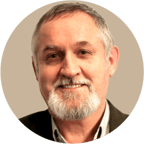
Professor and Course Coordinator MMed (Skin Cancer) Program School of Medicine, The University of Queensland, Australia
Professor Cliff Rosendahl currently works in Brisbane as a primary care practitioner with a special interest in skin cancer. He also has an interest in research as the clinical developer and Director of the Skin Cancer Audit Research Database (SCARD). His other main area of research has been in evaluating dermatoscopic clues and artificial intelligence for the diagnosis of skin malignancy in collaboration with colleagues at the Medical University of Vienna, Austria.
Prof Rosendahl has published over 70 articles in peer-reviewed journals and authored/co- authored two textbooks. He has a busy schedule presenting to GPs in Australia and to GPs and dermatologists internationally.
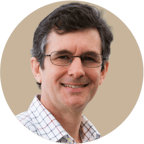
Dr Colin Armstrong is a general practitioner and part-time clinical trials investigator at the Wesley Research Institute, Brisbane. He completed all HealthCert certificate courses and The University of Queensland Master of Medicine (Skin Cancer) in 2011. Working primarily in skin cancer since 2010, Colin is passionate about building GPs’ confidence in their management of skin cancer and has an ongoing commitment to GP education in all facets of skin cancer diagnosis and treatment.
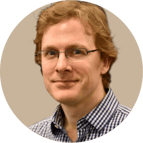
Doctor, National Skin Cancer Centres, Berwick
Dr Hamilton Ayres worked in Adelaide as a Plastic Surgery Registrar at Flinders, Repatriation General Hospital and the Royal Adelaide Hospital where his main role was the management of trauma, hand injuries and difficult skin cancers. Hamilton has obtained a Fellowship of the Royal Australian College of General Practitioners and Certificates in Skin Cancer Medicine, Dermatoscopy and Histopathology from HealthCert and The University of Queensland School of Medicine.

Study at your own pace and to your own schedule.
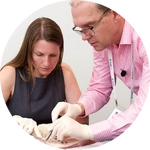
Complete your course online and receive all the benefits of online study, then put theory into practice at a small-group workshop.

Easily meet your CPD requirements and gain valuable skills – all in one place for $83 per month.
from $2495
*provided an outcome measurement activity with a minimum of 5 hours is completed.
Bundle two courses and save 5%, or three courses and save 10% upon enrolment.
Talk to us about deferred payment options, registrar scholarships and special rates.
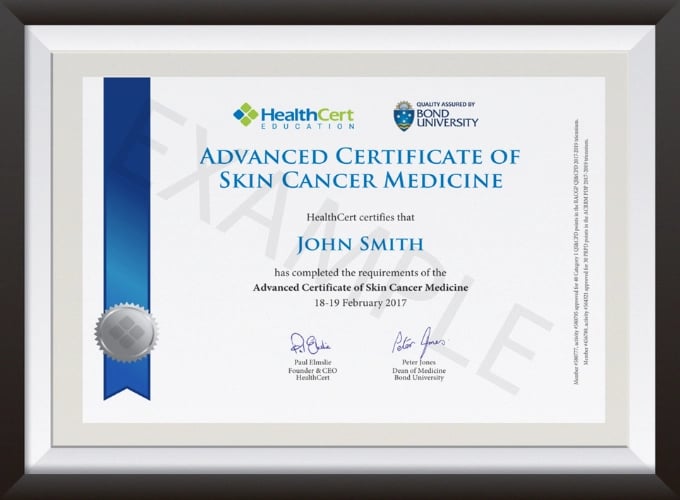

Lots of practice with supervision. This course greatly increased my confidence in managing skin cancer in my practice.
Dr N. Lo
Brilliant presenters, very relevant topics and overall great course. It will have a practical application in my clinical practice.
Dr S. Vig
If you ever look at skin lesions in your practice, you must do these courses. You can't do any skin cancer medicine in general practice without this information.
Dr S. Southgate
Everything was very relevant and easy to understand. Certainly in a very different league to all the other courses I have attended.
Dr M. Kaur
This essential course is a must-do for safe minor surgery, tailored to GPs.
Dr T. Seppi
| RACGP Activity Number | ACRRM Activity Number | Activity Title | Education Hours | Performance Hours | Outcome Hours | Total Hours | ||
|---|---|---|---|---|---|---|---|---|
| 404186 | 28023 | Ellipse planning | 404186 | 28023 | 4 | 5 | 0 | 9 |
| 404174 | 28021 | Biopsy, Haemostasis and Halo grafting | 404174 | 28021 | 4 | 5 | 0 | 9 |
| 404164 | 28019 | Suturing and Perfecting the Ellipse | 404164 | 28019 | 4.5 | 5 | 0 | 9.5 |
| 404190 | 28024 | The Big Three: BCC, SCC and Melanoma | 404190 | 28024 | 5 | 5 | 0 | 10 |
| 404182 | 28022 | Curretage and Cryotherapy | 404182 | 28022 | 4 | 5 | 0 | 9 |
| 404168 | 28020 | Local anaesthetics | 404168 | 28020 | 4.5 | 5 | 0 | 9.5 |
| 403766 | 28428 | The Chaos and Clues method | 403766 | 28428 | 4.5 | 6 | 0 | 10.5 |
| 808062 | 32971 | Local Anaesthesia Outcome Improvement Activity | 808062 | 32971 | 0 | 0 | 8.5 | 8.5 |
| Grand Total | 75 | |||||||
The optional Advanced Skin Cancer Medicine Practical Workshop is accredited for 8 CPD hours total.
Education hours: 1
Performance hours: 7
Outcome measurement activities are not a requirement of our professional and advanced certificates. You may use an optional HealthCert outcome measurement activity or develop your own.
HealthCert provides several options to meet your outcome measurement hours requirement. These options are self-submitted activities and hours may vary depending on your focus area.
The purpose of outcome measurement activities is to improve your clinical confidence in managing an identified learning gap. The outcome improvement activities are designed to examine current clinical care, align clinical practice with best practice standards and identify opportunities for improvement.
The Advanced Certificate of Skin Cancer Medicine is suitable for medical professionals wishing to solidify and advance your competency in dermoscopy, surgical and non-surgical treatments. Participants can expect to gain valuable experience in diathermy, curettage and cautery, advanced biopsy techniques and topical treatment options, equipping you with the knowledge to manage most skin cancers encountered in primary care and offering your skin cancer patients a wide range of treatment options.
The course is suitable for physicians, nurse practitioners, and degree-qualified nurses. Participants must have completed the Professional Certificate of Skin Cancer Medicine (or a qualification deemed equivalent).
Participants do not have to pass an IELTS test but, as the courses are delivered in English, proficiency in listening, reading and writing English is assumed.
Participants will require access to a computer/laptop, an internet connection and a basic level of technology proficiency to access and navigate the online learning portal.
Professionally accredited qualifications and prior studies may be
This certificate course meets the minimum 50 hours CPD annual requirement across all three mandatory CPD activity types, provided an outcome measurement activity with a minimum of five hours is completed. You may use an optional HealthCert outcome measurement activity or develop your own.
Outcome measurement activities are not a requirement of Professional or Advanced Certificates.
Upon successful completion of the course requirements, you will receive the Advanced Certificate of Skin Cancer Medicine certificate.
This certificate course:
To learn more about the delivery of certificates in Australia and overseas, please visit our FAQs.
Professional Diploma Pathway
This course is the second stage of the Professional Diploma pathway. The full pathway is Professional Certificate of Skin Cancer Medicine, Advanced Certificate of Skin Cancer Medicine and Professional Diploma of Skin Cancer Medicine.
RPL with The University of Queensland
The Professional Diploma of Skin Cancer Medicine is guaranteed for RPL for the unit IMED7010, part of the Graduate Certificate of Medicine (Skin Cancer) which is the first step in the Master of Medicine (Skin Cancer) at The University of Queensland. There are no further requirements for this RPL, it is automatic and guaranteed and provides a saving on fees. Learn more about The University of Queensland, Master of Medicine (Skin Cancer).
RPL with Torrens University
This postgraduate pathway is for General Practitioners and degree-qualified medical practitioners who have successfully completed a HealthCert Professional Diploma (all three levels) in Skin Cancer Medicine, Skin Cancer Surgery or Dermoscopy. The following postgraduate course is offered entirely online through Torrens University: Master of Business Administration (MBA). Recognition of Prior Learning (RPL) is available for two general electives for any HealthCert Professional Diploma. In cases where a HealthCert alumni has completed two Professional Diplomas, they will be able to apply for four general electives towards the MBA. This will be helpful to further develop business, management and leadership capabilities. Please apply directly to Torrens University.
Postgraduate Diploma in Dermatology
The Postgraduate Diploma in Dermatology is studied through the Rila Institute of Health Sciences and awarded by the University of Plymouth (UK).
There are three modules in the Postgraduate Diploma. Medical professionals who successfully complete the HealthCert Professional Certificate of Skin Cancer Medicine, Advanced Certificate of Skin Cancer Medicine and Professional Diploma of Skin Cancer Medicine will be eligible to apply for Accreditation of Prior Certified Learning (APCL) for module 3.
The Postgraduate Diploma is mainly delivered online. No practical workshops will be required due to the APCL from the HealthCert qualifications. Overall there will be a time saving of 40 per cent of the postgraduate program due to the APCL. Exams will be held in Perth, Western Australia.
When the Postgraduate Diploma has been successfully completed, medical professionals can apply for credit from the Postgraduate Diploma to the Master of Science in the specialism awarded by the University of Plymouth.
Certified Clinical Attachments Pathway
Clinical attachments are optional and available on a 1:1 or small group basis. These provide the opportunity to observe skin cancer treatments and ask questions of the expert performing the treatments. In addition to clinical attachments in Australia, university teaching hospitals at the University of Lyon and the University of Vienna are available for clinical attachments. HealthCert certificates and university statements are awarded for participating in clinical attachments.
The Medical University of Vienna is the largest medical organisation in Austria, as well as one of the top-level research institutions in Europe and provides Europe's largest hospital, the Vienna General Hospital, with all of its medical staff. The Vienna General Hospital has about 100,000 patients treated as inpatients and 605,000 treated as outpatients each year.
The dominant areas of study covered by The Université Claude Bernard Lyon 1 are science and medicine. Attached to the university are the "Hospices
This organisation is an RACGP-accredited CPD provider under the RACGP CPD Program.
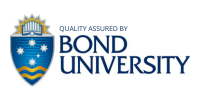

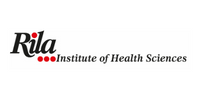
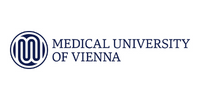
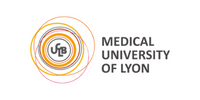


Don't see your question? Explore other faqs or talk to us.
Fees will vary based on the program and study option selected (fully online vs online + optional practical workshop). Payments can be made upfront or in monthly instalments. Special rates and various payment options are available. GP registrars and doctors in training enjoy a scholarship of up to $500. Talk to us to learn more.
Completion of any HealthCert course or attendance at an event will enable you to access the HealthCert Alumni Program which includes:
HealthCert Education is pleased to issue digital credentials for alumni. Digital credentials are a permanent online record of your successful completion of a HealthCert course and are issued to all course participants in addition to PDF certificates. If you are based in Australia, you also have the option to order a hard copy of your digital certificate for a small additional fee.
The recommended study duration of this certificate course is 66.5 hours, which includes study of the pre-course activities and readings, online lectures, live tutorials, and online assessment. This self-paced course offers the flexibility of 100% online study in your own time, at your own pace, in your own home or office, with no mandatory face-to-face requirements. You are not required to be online at specific times but can view and replay video lectures at your convenience.
All HealthCert courses meet World Federation of Medical Education standards. This certificate course qualifies for CPD hours from the Royal Australian College of General Practitioners (RACGP) and the Australian College of Rural and Remote Medicine (ACRRM) in Australia. It is recognised by the Royal New Zealand College of General Practitioners (RNZCGP) in New Zealand. It is recognised by the Hong Kong College of Family Physicians (HKCFP) in China. It is a self-submitted activity in Dubai and the United Kingdom. It is a self-submitted activity through the College of Family Physicians in Canada. If you live or work outside one of the above-mentioned countries, please contact us on admin@healthcert.com to discuss whether this course can be recognised in your country.
Want to stay up-to-date with the latest case studies, podcasts, free video tutorials and medical research articles pertinent to primary care?
Our Education Advisors can assist you with any queries and tailor our education pathway to suit your current expertise, interests and career goals.